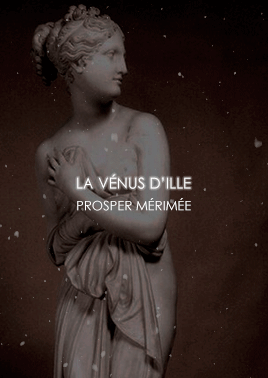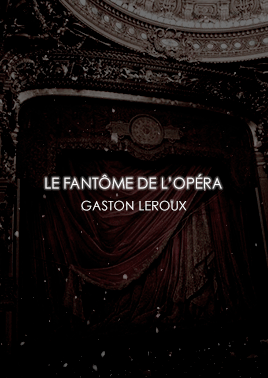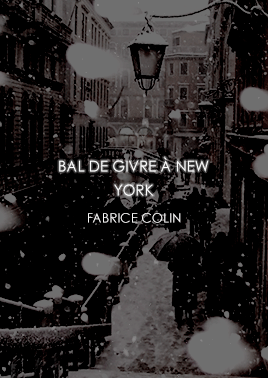This Is The (extremely Generic And Basic) Essay Framework That I Use For Most Of My Papers! Keep In Mind









this is the (extremely generic and basic) essay framework that i use for most of my papers! keep in mind this doesn’t account for the requirements of specific classes, subjects, or topics/questions at all, but i use it as a general starting point.
other essay masterposts: essay preparation, the 5 paragraph essay, how to research, writing essays when you don’t know where to begin
transcript coming soon!
More Posts from Edu-fuck-cated and Others
STUDYING in French
WHAT PEOPLE REALLY DO WHEN THEY STUDY
procrastiner - to procrastinate
TO STUDY
étudier - to study
bosser à fond - to work (hard)
bosser comme un fou/un malade - to work like mad
bosser dur - to buckle down
faire des recherches (sur) - to research/do research (on)
la lecture générale - background reading
travailler - to work
se mettre au travail - to get to work/buckle down
s’y mettre (sérieusement) - to buckle down
IN THE EXAM
avoir un trou (de mémoire) - to draw a blank
se creuser le cerveau/les cervelles/le ciboulot - to rack your brains
deviner - to guess
réussir haut la main - to breeze through (the exam)
TO PASS
réussir - to pass (an exam)
y aller au talent - when you pass a test without having studied e.g. j’y vais au talent
***NOTE: passer un examen ONLY means to do an exam, not to ‘pass it’
TO FAIL
échouer à (un examen) - to fail an exam
ne pas avoir son examen - to fail an exam
rater ses études - to fail your exams
ACADEMIC SUCCESS/FAILURE/ACHIEVEMENTS
être en échec scolaire - to underperform at school/be a dropout
rater ses études - to fail your course
Teen French expressions
For if you want to make hip young friends.
Disclaimer: French people complain a lot. A lot. Don’t be surprised if 90% of these expressions are complaining.
Non mais oh - say this if someone does something mildly annoying and you want to express your shock and distaste.
Tu me fais chier - (alt. tu me fais chier, là.) literally ‘you make me shit’. means you’re pissing me off.
Carrément - translates to ‘squarely’. Means ‘literally’. If someone tells you something surprising or annoying, you can answer simply “ah carrément.” see: tu me fais carrément chier.
J’hallucine / je rêve - are you annoyed by something? say these.
C’est pas possible - a classic. anything bad happens - c’est pas possible. There is no cheese left? It’s not possible. I’m hallucinating. This is a burden on me that solely I can bear I cannot believe this is happening.
Ça commence à me gaver - I’m starting to get real sick of this. see: Ça commence carrément a me gaver là, putain.
T’es relou - verlan slang for ‘lourd’ meaning someone’s heavy, personality-wise. They’re tedious.
Ça me saoûle / ça me gonfle - similar to gaver, means something’s pissing you off, you’re sick of it.
Grave - totally.
C’est clair - totally/that’s clear. Like ‘claro’ in spanish. “Justine elle est trop relou” “C’est clair. Elle me fait chier.”
J’en ai marre - I’m sick of this.
J’en ai ras le bol - I’m sick of this.
J’en ai ras le cul - I’m sick of this (vulgar).
(J’en ai) Rien à battre - I don’t give a damn.
(J’en ai) Rien à foutre - I don’t give a fuck.
C’est bon, là. - That’s enough.
Perso, euh, - “Personally,” generally used at the start of a complaining sentence, to express how personal the matter is to you. Perso, euh, c’est bon là. J’en ai ras le cul.
Rôh là - general expression of distaste. Le longer the rôh, the more annoyed you are. Rôôôôôôôôôôôôôôôôôôôôôôôôôôôôh, c’est quoi ce bordel.
C’est quoi ce bordel ? - translates to “what’s this brothel”, means “what’s this shit?!”
C’est de la merde - It’s shit.
C’est une blague ? - Is this a joke?
Idem - ditto
J’ai la dal - I’m hungry
Ça caille - It’s freezing
Ouf - two meanings 1. phew or 2. verlan for “fou”, meaning crazy (as a noun or adjective). “Kévin, c’est un ouf! Il fait du vélo sans casque!” “Ouais carrément, c’était un truc de ouf!”
Kévin - there’s a running joke that all the young delinquents seem to be called Kévin.
Crever - slang for “to die”. Va crever, connard!
Connard/Connasse - c*nt, but a lot less vulgar in french peoples eyes
And finally,
T’es con. No English translation can express the power behind the words “t’es con”. While it may sort of translate to “you’re a c*nt/idiot”, it expresses something much deeper. You really are a god damn fool.
What to do during lockdown
(and work on your French):
Work on your pronunciation
Read some classics
Read some fanfiction
Listen to podcasts
Listen to TED Talks
Listen to music
Listen to the radio
Watch french movies (detailed, by period and type)
Watch dubbed/subtitled movies: The Simpson, Cesar and Cleopatra, The Man Who Knew Too Much, The Red Shoes, La Vérité
Watch cartoons
Watch youtubers
Watch let’s plays: 1 2 3 4 5
Work on some MOOCs
Learn about black holes, Pompei, giant animals, gladiators, the Dreyfus affair, Charles Manson, ants, Leonardo da Vinci, Rome, smelly cheeses, Mozart, the Bermuda triangle, meditation…
Follow french subreddits
Search our social media
Visit the Louvre online
Check my practice tag
And make sure your priorities are in order!

Resources masterpost
Being exposed to French:
Websites, social media
IG accounts with lots of stories
Online courses about French
Online courses in French
French subreddits
Fanfictions
Buzzfeed
Improving your:
Pronunciation
Speaking
Stutter
Things to listen:
Music
Podcasts
Radio stations
TED talks
Things to read:
Graphic novels/comics
News
Ebooks + quizzes (by me)
Short stories
Vikidia - kids Wikipedia
Things to watch:
Cartoons
Kids shows
The Simpsons the movie
True crime
TV programs - sci-fi shows, travelling, etc.
Youtubers
Extra:
Antidote 10 + BonPatron - Grammarly equivalents
Conjugation by le Nouvel Obs
Deepl - very good at translating sentences/expressions
Forbo - natives pronouncing things
Lexicity - about Ancien/Moyen Français
Lingolden - Chrome extension that teaches vocabulary
Linguo.tv (french videos + subtitles)
Reverso - very good alternative to Google translation


i was struggling with the agreement of prepositions, so i made these reference sheets with the help of my french teacher! Let me know if there’s anything I need to correct, grammatically or visually!
The reality about spoken french
We don’t use the negation ne. We say Je sais pas (I don’t know) or On a pas à le faire (we don’t have to do it),
Speaking of which, we prefer using on rather than the pompous nous : On est arrivé-es (we’ve arrived), On y va? (shall we go)
Speaking of which, our questions are often affirmative sentences ending with a question mark (i.e. : a high-pitched tone) : Tu viens? (are you coming), T’en veux un-e? (do you want one).
Speaking of which, we chew words. When followed by words starting with a consonant, personal pronouns can lose their final letter : J’te l’dis! rather than Je te le dis (I’m telling you).
Speaking of which, we’re lazy : Je can be Che (chais pas), Il can be Y (r’garde, y’a un chat!) and grunt : many euh (uh), ah, bah (hum), ben (well), hein (tf?) and rhooo/rhaaa (ffs). We often start sentences with but : Mais tu saoules! (you’re annoying) to express displeasure.
Speaking of which, on top of dropping négations, we drop pronouns : You’re being a pain in my ass should be Tu me fais chier but can be Tu fais chier - maybe to make it universal or dramatic.
Speaking of which, we thrive on sarcasm and irony. To someone who’s babbling, we’ll answer It makes my leg look good.
Speaking of which, we repeat (personal) pronouns at the beginning or end of sentences. We’re likely to ask Qu’est-ce qu’il en dit, lui? and answer Moi, je veux bien (tonic pronouns, careful!).
Speaking of which, we like to use the conditional mode to indicate a wish or hypothesis : lots of Si j’avais su, j’aurais dit oui (had i known, i’d have said yes), J’aimerais bien pouvoir- (I wish I could-), etc.
Speaking of which, we add useless words : Bien (j’irais bien), Petit (un petit peu), Très (très vrai), Trop (je ne sais pas trop), ça (C’est quoi, ça?)…

Speaking of which, let’s stop before you all get disgusted and unfollow me. Remember this is spoken, private french and doesn’t apply to formal situations!
Wiccan Vocabulary in French - Vocabulaire wiccane en français

La Wicca - wicca
Le Chamanisme – Shamanism
Le Néo-paganisme - Neo-paganism
La Mythologie – mythology
gréco-romaine – Greco-Roman
slave – Slavic
celtique – Celtic
nordique- Norse
Un culte à mystères – mystery cult
Un wiccan – a Wiccan
Une sorcière / un sorcier – a witch
Un coven- Coven
La pratique solitaire (de la Wicca) – solitary practice (of Wicca)
Les dieux païens – Pagan Gods
La Grande Déesse – The Mother Goddess
Le Dieu Cornu – The Horned God
La Charge de la Déesse - The Charge of the Goddess
Le Panthéon - Pantheon
Le credo wiccan – The Wiccan Rede
Fais ce qu'il te plaît tant que cela ne nuit à personne - An it harm none, do what ye will.
La règledu triple retour – The threefold law
☸️La réincarnation - Reincarnation
Les éléments – The elements
🔥Le feu - Fire
🌊L’eau (f.) - Water
🌍La terre - Earth
🌬L’air (m.) - Air
👻L’esprit (m.) - Spirit
📓Le Livre des Ombres – Book of Shadows
⭐️Un pentagrame (droit/inversé) - Pentagram (upright/ inverted)
Un Pentacle - Pentacle
Une baguette magique - wand
Le rituel - ritual
Le cercle magique - magic circle
🎉Les fêtes (fpl.) wiccanes – Wiccan festivals
🔄La roue de l’année - The wheel of the year
Le Sabbat – Sabbat
things i wish i could tell my freshman self: a list of miscellaneous college tips from a graduating college senior
1. having a huge set of highlighters are overrated. it’s better to just go over your readings with a good pen and annotate/underline as you read because that means you engage, ask questions, and take in information better. 2. always. pack. your own. lunch. pack. your own. coffee. this will save you so much money. 3. when in doubt, sleep. sleeping is better than studying. if you don’t know tomorrow’s coverage, it’s better to go that test well-rested and a little confused than sleepy AND confused. just sleep. 4. putting too much pressure on yourself is unhealthy. overwork is often romanticized as “a good work ethic” or “being productive”, but honestly, you’re abusing your body. it’s better to reframe pressure or negative motivation (”you MUST get high grades” “it feels good when i stay up all night because it means i’m studying like hermione/rory/etc etc”) into something positive and healthy: “i’ll finish these readings before 12 so i can get some sleep!” “it’s my dream to _______, so i’ll do my best!” 5. make friends with someone in every class you have, so you can ask about missed work. if you can, make friends with the professor to show that you care. 6. there’s more to college than academics. honors and high grades aren’t everything. don’t be afraid to go out and have fun!
Expressing Your Opinion IN FRENCH - update with indications of subjunctive use
Expressing thoughts…
Je pense que + indicative – I think that
Je ne pense pas que + subjonctif - I don’t think that
Je crois que + indicatif – I think that
Je ne crois pas que + subjonctif - I don’t think that
À mon avis – in my opinion
D’après moi – in my view
J’ai l’impression que + indicatif (in the negative [je n’ai pas l’impression que] it uses the subjunctive) – I have the feeling that
Il me semble que + indicatif (in the negative it uses the subjunctive) – it seems to me that
Je suis d’avis que + indicatif (mostly) – I’m of the opinion that
Je trouve que + indicatif (in the negative it uses the subjunctive) – I find that
Personnellement – personally
Pour ma part – for my part
Pour moi – for me
Supporting an opinion
On dit que + indicatif (in the negative it uses the subjunctive) – they say that
J’ai entendu dire que + indicatif – I heard that
J’ai entendu parler de + nom – I heard about
Par exemple – for example
Staying neutral
Cela dépend de + indicatif (unless que is used) – that depends on
C'est une question de point de vue – It all depends on your point of view.
Il est / C'est difficile de – It’s hard to
Il m'est impossible de donner un avis (définitif) sur – I can’t express a (definite) opinion on
Je n'ai jamais vraiment réfléchi à – I have never really thought about
Je n'ai pas d'opinion bien précise à / arrêtée sur – I don’t have strong feelings about
Je ne me le suis jamais demandé – I’ve never wondered about it
J’ignore tout de – I don’t know anything about
I think I got a lot of these from a particular website, maybe about.com, I can’t remember because I got it from a sheet I made for a student a while ago.
-If there are any questions or corrections lemme know:)
-
 withloveyazmineblack reblogged this · 2 months ago
withloveyazmineblack reblogged this · 2 months ago -
 roseulqrtz liked this · 7 months ago
roseulqrtz liked this · 7 months ago -
 kikisumarusworld liked this · 9 months ago
kikisumarusworld liked this · 9 months ago -
 bluerose--000 liked this · 9 months ago
bluerose--000 liked this · 9 months ago -
 iluvcats-world liked this · 10 months ago
iluvcats-world liked this · 10 months ago -
 clarachuu liked this · 11 months ago
clarachuu liked this · 11 months ago -
 pibsycat liked this · 1 year ago
pibsycat liked this · 1 year ago -
 ladygirlguide liked this · 1 year ago
ladygirlguide liked this · 1 year ago -
 steadytriumphwasteland liked this · 1 year ago
steadytriumphwasteland liked this · 1 year ago -
 oa-trance liked this · 1 year ago
oa-trance liked this · 1 year ago -
 wxnlx liked this · 1 year ago
wxnlx liked this · 1 year ago -
 lostsoulsdowander-blog liked this · 1 year ago
lostsoulsdowander-blog liked this · 1 year ago -
 lastdb liked this · 1 year ago
lastdb liked this · 1 year ago -
 ladyimaginarium reblogged this · 1 year ago
ladyimaginarium reblogged this · 1 year ago -
 hyorasocascy liked this · 1 year ago
hyorasocascy liked this · 1 year ago -
 miseraybusiness liked this · 1 year ago
miseraybusiness liked this · 1 year ago -
 aquarellibytes liked this · 1 year ago
aquarellibytes liked this · 1 year ago -
 mydarkorchid reblogged this · 1 year ago
mydarkorchid reblogged this · 1 year ago -
 softieevlogia liked this · 1 year ago
softieevlogia liked this · 1 year ago -
 slightlystudy reblogged this · 1 year ago
slightlystudy reblogged this · 1 year ago -
 fearofsex liked this · 1 year ago
fearofsex liked this · 1 year ago -
 matrixbunnie reblogged this · 1 year ago
matrixbunnie reblogged this · 1 year ago -
 noblebutchblues liked this · 1 year ago
noblebutchblues liked this · 1 year ago -
 raynaissance liked this · 1 year ago
raynaissance liked this · 1 year ago -
 punk-by-the-book liked this · 1 year ago
punk-by-the-book liked this · 1 year ago -
 yiz-yo liked this · 1 year ago
yiz-yo liked this · 1 year ago -
 akemiasuna liked this · 1 year ago
akemiasuna liked this · 1 year ago -
 ursus-lunae liked this · 1 year ago
ursus-lunae liked this · 1 year ago -
 cashewwentnuts liked this · 1 year ago
cashewwentnuts liked this · 1 year ago -
 cashiepsa-45 liked this · 1 year ago
cashiepsa-45 liked this · 1 year ago -
 sunnyspoutsstuff liked this · 1 year ago
sunnyspoutsstuff liked this · 1 year ago







